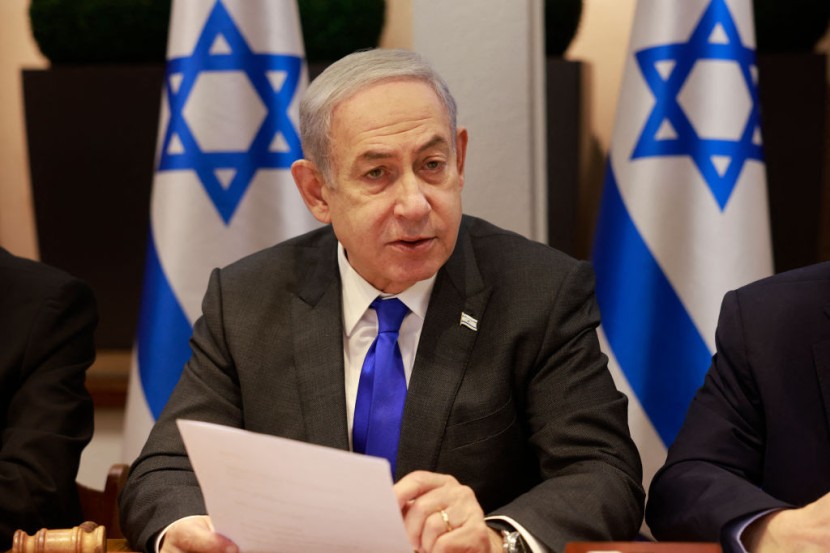Prime Minister Benjamin Netanyahu asserted on Wednesday that Israel would not consider a ceasefire in Gaza until Hamas is completely eliminated.
The announcement follows a 10-week war between Israeli forces and the Palestinian militant group, with Netanyahu outlining three primary objectives - the elimination of Hamas, the release of hostages, and ending the threat from Gaza, as per NDTV.
Gaza Crisis Deepens Amid Stalled Truce Talks

Netanyahu's declaration came after Hamas chief Ismail Haniyeh traveled to Cairo for talks with Egyptian intelligence chief Abbas Kamel to explore the possibility of a truce in the besieged enclave. The visit follows heightened pressure on Tel Aviv to secure the release of hostages, especially after three Israelis were mistakenly killed by the IDF, despite displaying white flags with 'SOS' written on them.
The UN Security Council is set to vote on a resolution today, calling for a pause in the conflict, after delays in previous votes due to disagreements over wording. Netanyahu, however, reiterated Israel's commitment to achieving its objectives, emphasizing ongoing military operations against Hamas terrorists throughout Gaza.
The humanitarian crisis in Gaza continues to escalate, with tens of thousands seeking refuge in overcrowded shelters amid severe shortages of food, medicine, and other essential supplies. Israel's Foreign Minister traveled to Cyprus to discuss the possibility of establishing a maritime corridor for delivering large-scale humanitarian aid to Gaza.
Efforts to communicate with Hamas leaders within the territory face challenges, as mobile phone and internet services remain disrupted. Despite recent diplomatic initiatives mediated by Egypt, Qatar, and the US, a significant gap remains between the two sides' demands.
Hamas, holding an estimated 129 captives, insists on the release of Palestinian prisoners, including high-level militants, in exchange for the remaining hostages. Israel, under public pressure, has a history of engaging in lopsided exchanges but has rejected these demands, according to Daily Mail.
Israel Defiant as Pressure Mounts to Cease Offensive
The conflict's toll on civilians is alarming, with a recent strike on the Jabaliya refugee camp causing at least 46 deaths and over 100 injuries. Pressure on Israel to halt or scale back its offensive is growing, but Israeli leaders, including Netanyahu, remain resolute in their commitment to destroying Hamas and freeing hostages.
In a surprising development, the domestic political landscape is intertwining with the conflict. Netanyahu, facing challenges to his leadership, is using the war to bolster his political position. Amid calls for new elections, the prime minister is emphasizing his commitment to dismantling Hamas and rejecting international proposals tied to the decades-old Oslo Accords.
Critics argue that Netanyahu's focus on past agreements is a strategic move to divert attention from the pressing need for a resolution and to solidify his political standing. The situation is further complicated by public dissatisfaction, with a substantial percentage of Israelis expressing a desire for new elections after the war concludes.
As the conflict continues, the intertwined narratives of geopolitical strategy, humanitarian concerns, and domestic politics paint a complex picture of the ongoing crisis in Gaza. The international community watches closely as the region grapples with the multifaceted challenges posed by the protracted conflict, CNN reported.








